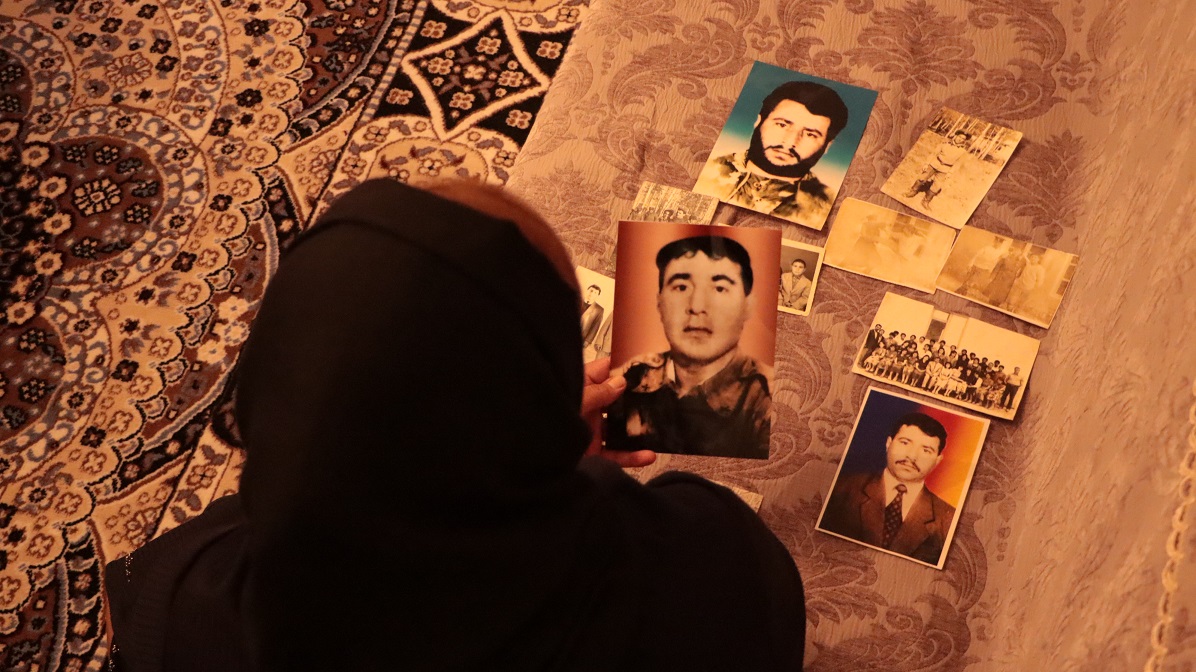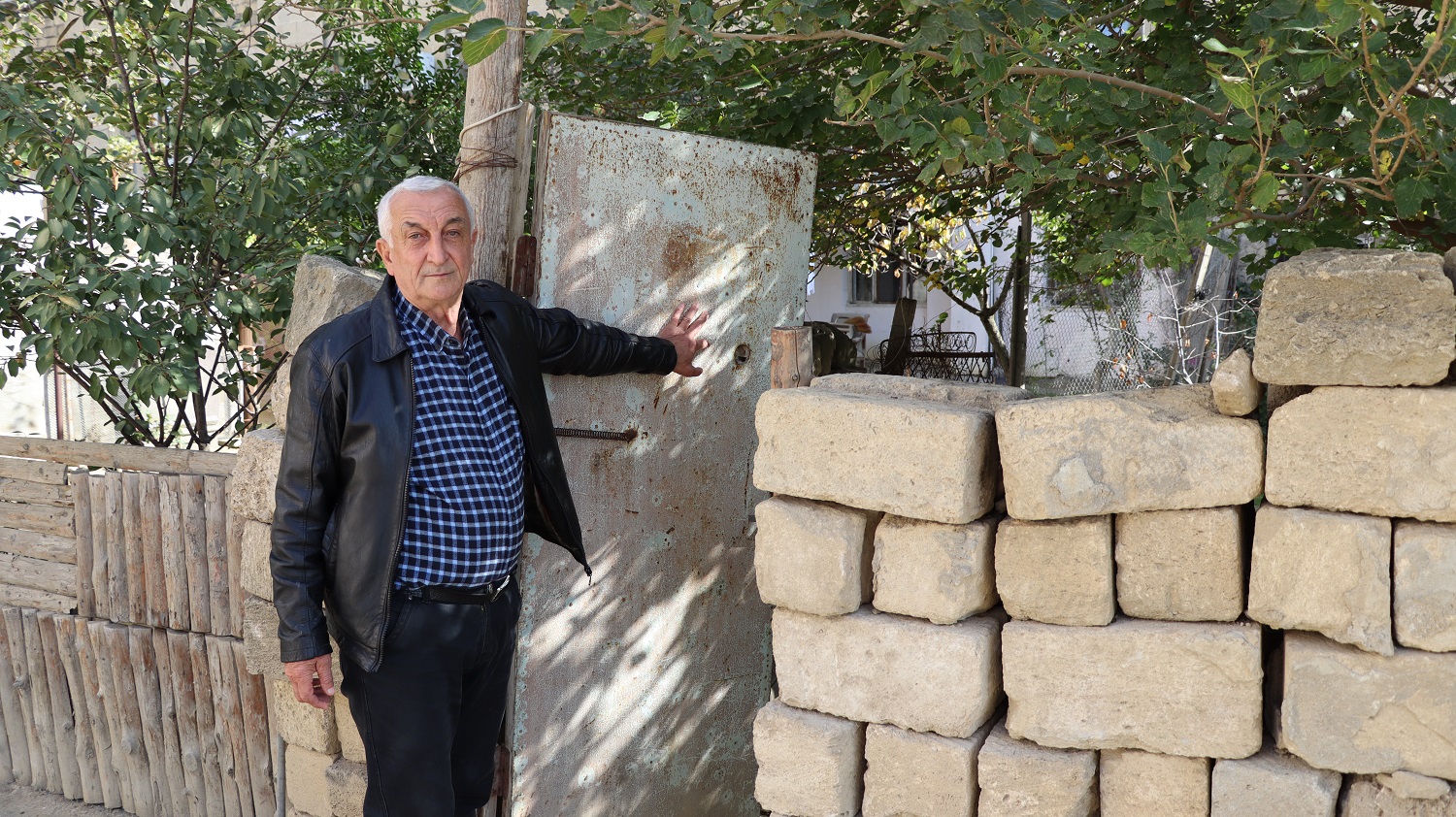Azerbaijani IDPs return to Karabakh. Two different stories
Azerbaijani IDPs return to Karabakh.
“Our childhood was spent in the mountains and forests. My friends and I often climbed steep cliffs and spent days on the highest points of Lachin. Even now I remember how proudly we used to look at the city from these heights. For hours we would stare as if we were drawing a map of the city in our heads…”
Ilgar Mahmud was born in 1968 in the village of Shamkend in Lachin district. He now lives with his wife and son in an unfinished house in the village of Darnagul.
- “It’s dangerous work, but it’s better than unemployment”. Cleaners on highways in Azerbaijan
- Life on Baku-Sumgait-Baku trains
- A trip to the “Alumni House,” whose address even Google Maps doesn’t know
He says that his father was a doctor and his mother a nurse. When he reached school age, his parents started working at the Lachin hospital, so the family moved from the village to the district center. This is where he went to school.
Ilgar Mahmud lived there with his family until Lachin was occupied during the first Karabakh war.
“No one agreed to go to Lachine to get people”
He says that he spent the days before the occupation looking for a car to take people out of the city. People were afraid that the Khojaly incident would be repeated in Lachin. But it was difficult to find a car. There were not many people willing to go to the front from safe neighborhoods.
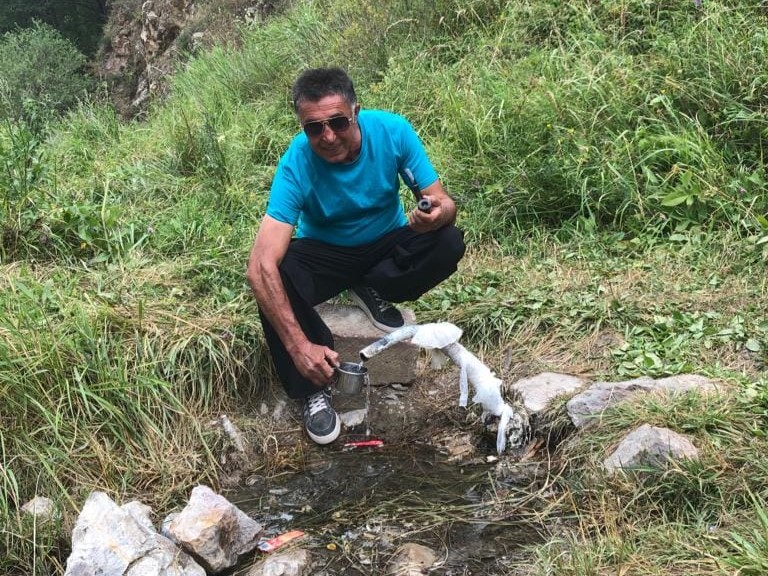
“My friend and I went to Baku and offered money to many drivers to take civilians out of Lachin, but no one agreed. In the end, desperate, we lied to a bus driver named Abbasgulu from Mashtagi (a village on the outskirts of Baku) that we were going to a wedding in Alyat. He agreed for 500 manat.
We were on our way and I still couldn’t admit that we should actually go to Lachin. On the way I started a conversation about Lachin, about the war, to see what he thinks about all of it. When we reached Alyat, I said we should eat. So we went and sat together. Finally I said that we should go to Lachin. He did not agree to go himself, he said that he had a sick man at home, no one to carry medicine except him and that he could not go with us. But he gave us his bus.
That’s how we reached Lachin. The crowd rushed into the bus so much that there was hardly any light inside,” his voice trembles as he speaks, as if reliving that day.
Ilgar, with a bus full of people, left Lachin for Baku. His family was also among those who moved that day. They settled in Baku and life as refugees began.
“It was very difficult for us. No home, no shelter. We couldn’t take even bedding with us. For months we lived half-starved-half-naked in rented accommodation until we moved into this unfinished house where we live now. But I never once knocked on the doors of relatives or officials and asked for help,” he says with bitterness in his voice.
Lachin after 28 years
According to the statement signed by the leaders of Azerbaijan, Russia and Armenia after the second Karabakh war, the liberation of some of the occupied territories was realized according to the schedule stipulated in the document. According to it, on December 1, 2020, the Lachin district returned to the control of Azerbaijan.
Thus, Ilgar Mahmud after 28 years was able to return to the lands where he was born and raised.
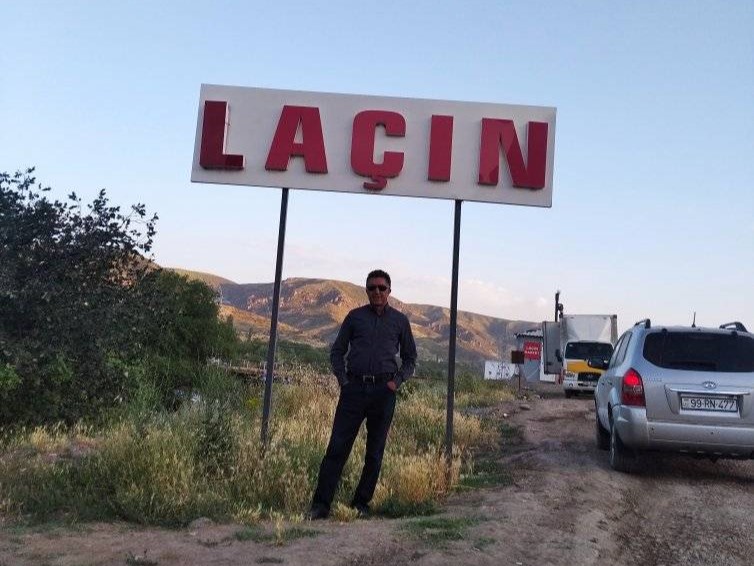
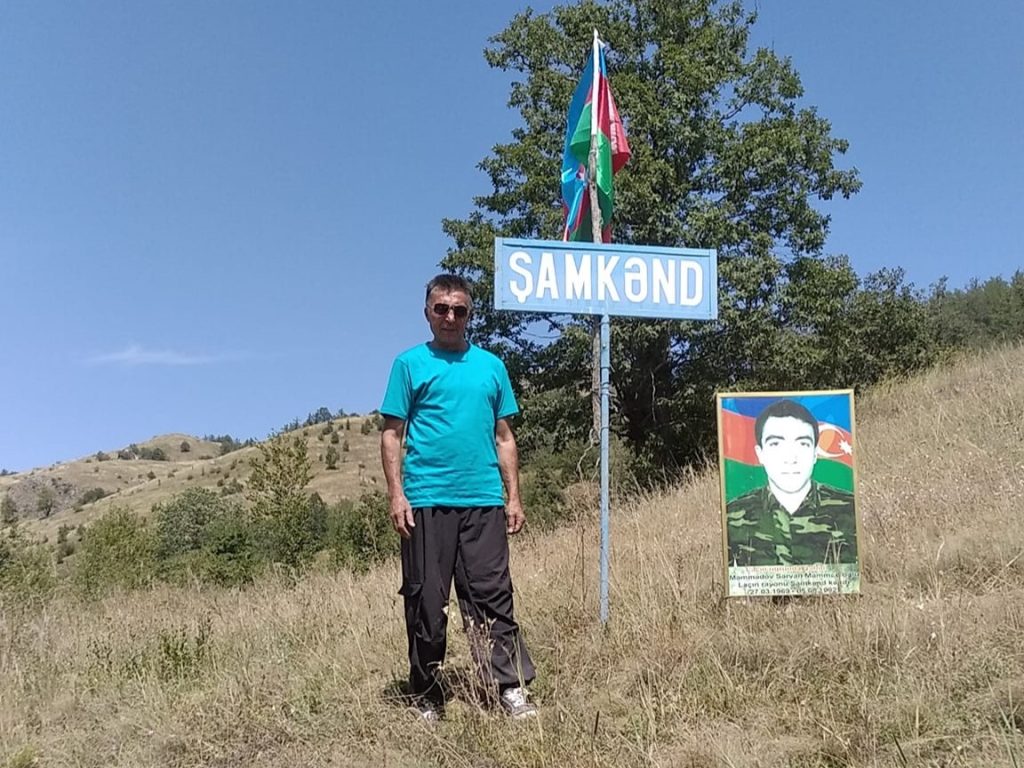
“First of all I visited our house. I saw that there were only ruins left but I recognized it from the foundation. Now I can’t stop thinking about when our house will be rebuilt and we can go back there,” he says, showing pictures taken in Lachin.
He now travels to Lachin often. There he practises beekeeping with other locals. He spends his days on the outskirts of Lachin, just as he did when he was a child. He keeps his bee hives in the most fertile areas of his native region.
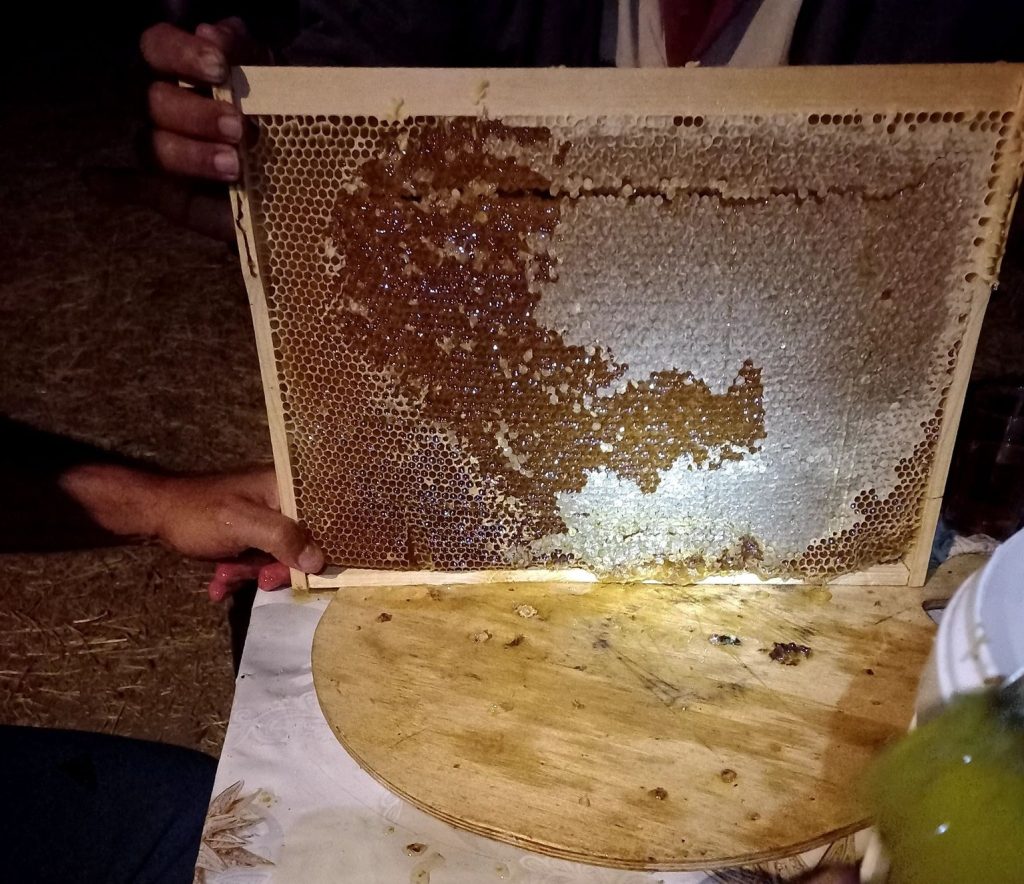
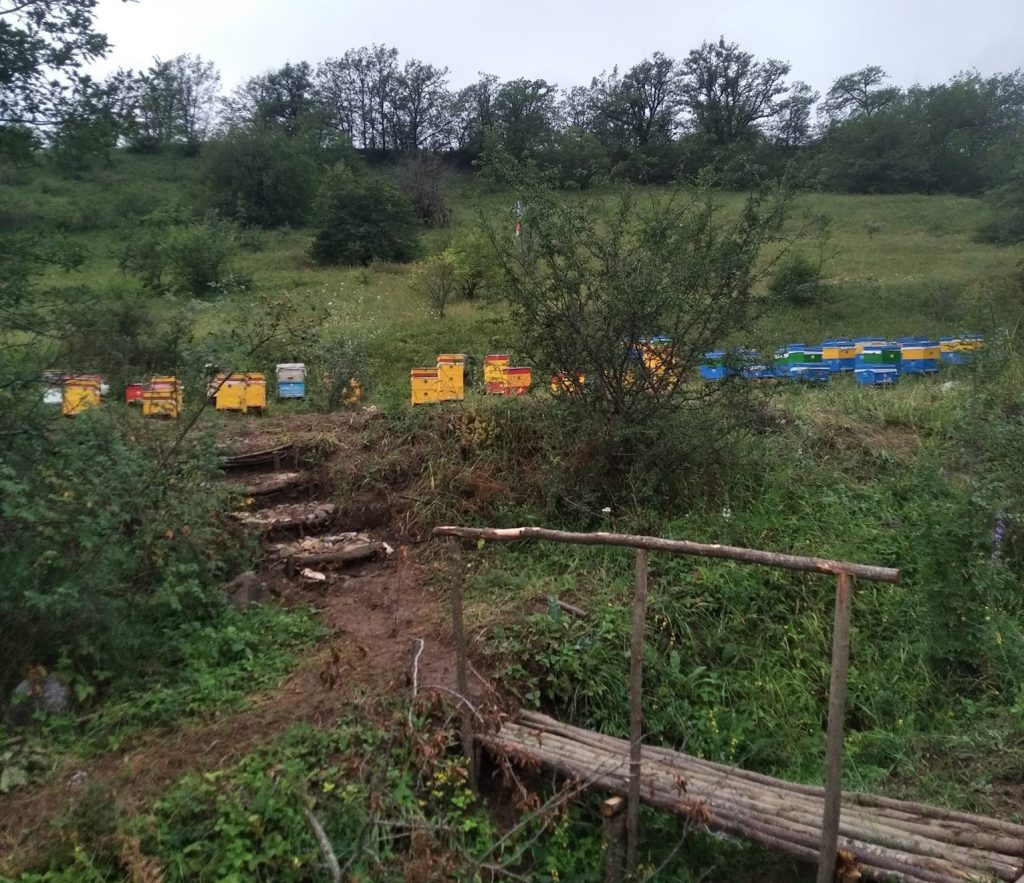
Now his greatest wish is to return once and for all to the places where he spent his best years, to restore his home and live in it again.
“After returning to Lachin, I became convinced that I had never been able to affinity with Baku. I always felt like a tourist there. I am waiting for us Lachin people to be resettled in our native places. I want to spend the rest of my life there, on the land where I was born and grew up.
But I am against the idea of living with Armenians again. I think that if this happens, wars will be repeated again. In 20-30 years Armenians will return to their territorial claims. What I am saying is based on what we have experienced in the past; who can prove otherwise? There is no such example,” he concludes.
“I thought it was just everybody leaving one at a time, and now it’s our turn”
But not all Karabakhis aspire to live in these territories again. Azer Seyidov is one of them.
He was born in 1986 in the village of Yukhary Nusus in the Jebrail district. He was only seven years old when the Jebrail district was occupied, therefore he has very few memories of the land.
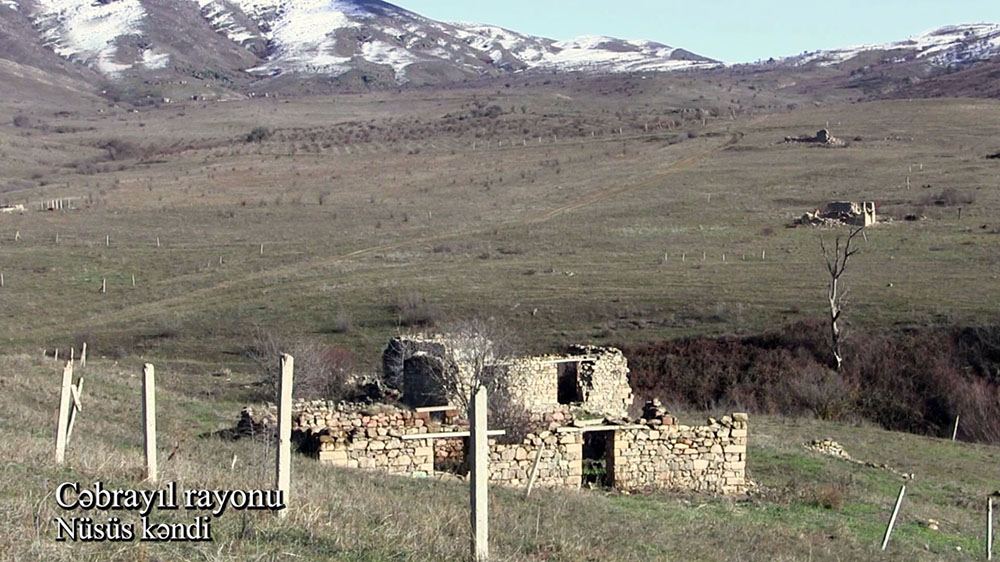
“I remember the period when Jebrail was occupied. I would go to school in a month. My father bought me colored pencils in the district center, which were rare at that time. Because of these pencils, I counted the days when I would finally go to school.
Then suddenly people started packing up. They said they had to leave the village, the Armenians were coming. At that time, they talked about the occupied districts and villages all day long at home. As a child I took it as if everyone was leaving one by one, and it was our turn to leave, it didn’t seem like something terrible to me. We basically packed small but valuable things in the house and left on one of the trucks that left the village,” Azer says slowly, as if trying to let his memory catch up.
The Jebrail and Fizuli districts were occupied on the same day – August 23, 1993. These two districts were the last territories to fall under the control of the Armenian army as a result of the first Karabakh war.
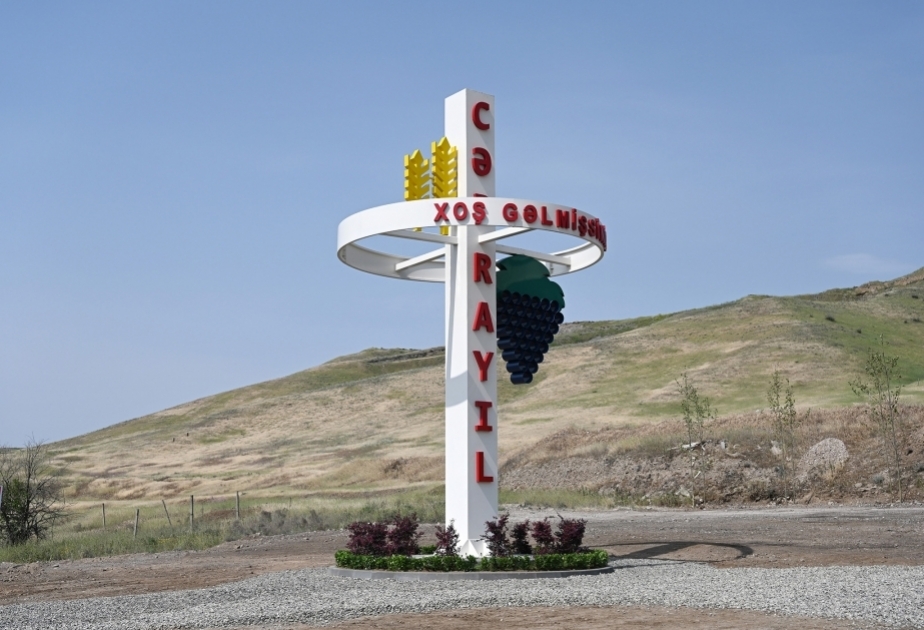
According to official information, about 600,000 people forcibly displaced from the then Nagorno-Karabakh Autonomous Oblast and seven adjacent districts went to different cities and districts of Azerbaijan, including Baku. Most of them could not bring with them even the most basic necessities.
During the first ten years, most of the refugees were accommodated in tent cities, administrative buildings such as schools, kindergartens, dormitories and unfinished buildings. In the next phase, the process of providing them with housing was launched.
Azer’s father did not take his family to Baku because of the congestion in the capital; they took refuge in the house of a coworker who lived in Yardimli district.
“This was the second time I had seen this man. Once, a year ago, he had been our guest in Jebrail, and now we came to his small house. Since he had no family and no children, my father, mother, myself and my younger sister were able to stay in his house. My father was a carpenter and laborer. He was making a good living. Later, this friend of my father helped us a lot, we got our own house, he was a very good man,” Azer says about him with a smile.
Azer received secondary education in Yardimli district. But later he did not aspire to get higher education. In the 2000s he moved to Baku, as there were few job opportunities in the region and it was difficult to earn a living. Although he learned the craft of carpentry from his father, he was not interested in this work. He started working in a car repair shop in Baku. He has remained there ever since.
“I rejoiced at the release of Jabrail, I think my father’s soul has found peace”
Now he lives in a rented apartment in the Yasamal district of Baku. He says he was very happy when he heard the news about liberation of Jebrail from occupation. But mostly because of his father.
“My father died in 2017. His heart was sick, although we tried to treat him as best we could, it didn’t help. He talked about Jabrail until the day he died. So I was very happy to hear about the release of Jabrail. I think his soul has now found peace. The only thing that connected me with Karabakh was my father’s longing for it. No other memories, no attachment. The realized years of my life were spent in Yardimli and then in Baku. So for me now there is no difference between moving to Karabakh and moving to any other region,” Azer says.
Nor can he imagine when life in Karabakh will be fully restored, when travel to these areas on special permits will cease, what employment opportunities will be available there. It seems to him that the answers to all these questions are in the distant future. That’s why he is building his future in Baku.
“Probably not all Karabakhis will go back. After all, we have taken root in other cities and other homes. 30 years is a long time. It is very difficult for some people to start from scratch, to change their place of residence again, and for a person like me, who has lived in another city since childhood, it is simply impossible.”










